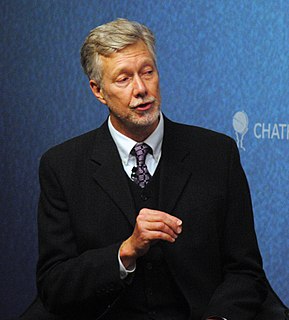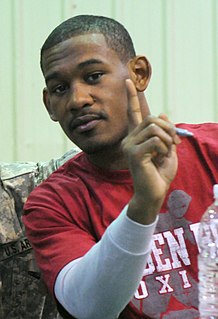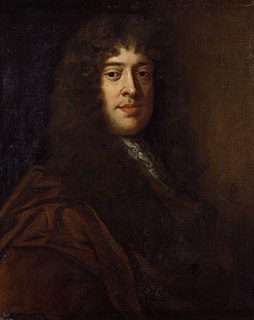A Quote by John Dryden
He invades authors like a monarch; and what would be theft in other poets is only victory in him.
Related Quotes
One of the surest tests of the superiority or inferiority of a poet is the way in which a poet borrows. Immature poets imitate mature poets steal bad poets deface what they take and good poets make it into something better or at least something different. The good poet welds his theft into a whole of feeling which is unique utterly different than that from which it is torn the bad poet throws it into something which has no cohesion. A good poet will usually borrow from authors remote in time or alien in language or diverse in interest.
Canelo is not only the face of boxing, but he is probably pound-for-pound one of the best in the sport. He's one of the most recognized fighters in all our sport. I think a victory over him, a convincing victory, would definitely solidify my spot and it would be inevitable for people to know who Daniel Jacobs is.
I started moving away from poets like Wallace Stevens and Hart Crane and started reading poets like, again, Karl Shapiro, Howard Nemerov, Philip Larkin, and the British poets who were imported through that important anthology put together by Alvarez - and those would include Thom Gunn and Ted Hughes. And I think these poets gave me assurance that there were other ways to write besides the rather involuted style of high modernism whose high priests were Pound, Eliot and Stevens, and Crane perhaps.
Well, here he was. They could save each other, the way the poets promised lovers should. He was mystery, he was darkness, he was all she had dreamed of. And if she would only free him he would service her - oh yes - until her pleasure reached that threshold that, like all thresholds, was a place where the strong grew stronger, and the weak perished. Pleasure was pain there, and vice versa. And he knew it well enough to call it home.
It must be a peace without victory... Victory would mean peace forced upon the loser, a victor's terms imposed upon the vanquished. It would be accepted in humiliation, under duress, at an intolerable sacrifice, and would leave a sting, a resentment, a bitter memory upon which terms of peace would rest, not permanently, but only as upon quicksand. Only a peace between equals can last.
Schoolchildren all over America are told to write to authors-often to authors whom they have never before heard of, whose work they are to young to understand in the least, and often in letters which are almost illiterate. If children are to be taught to respect the work of American poets I think some better way might be found to do so- some way which would not make such an inconsiderate demand on the author's time.






































